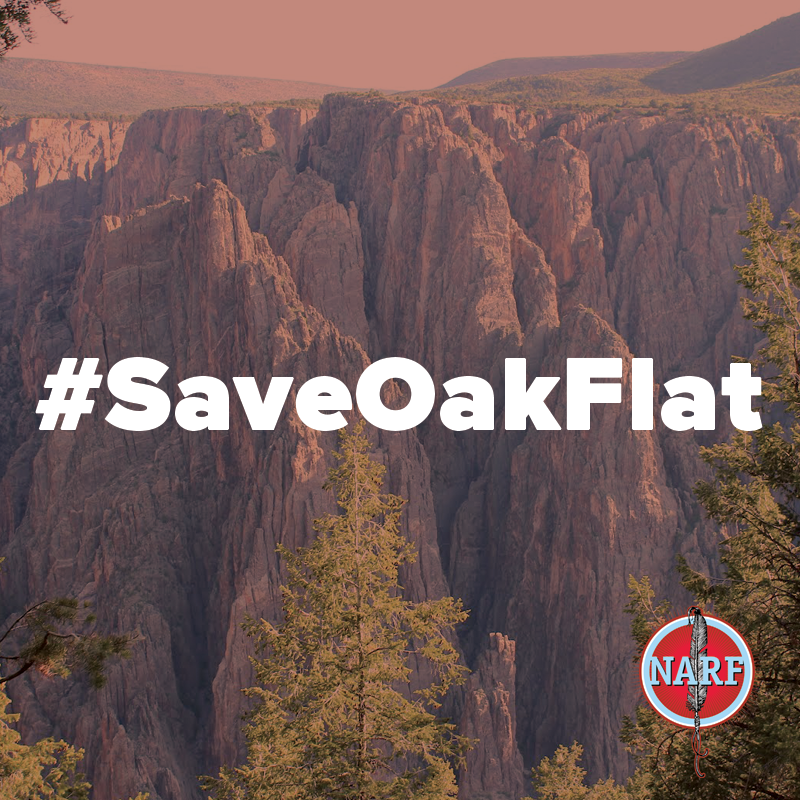In an amicus brief filed October 15, 2024, 44 Tribal Nations and 8 organizations urged the U.S. Supreme Court to hear Apache Stronghold v. United States. The brief supports Apache Stronghold in asking the Court to overrule a decision by the Ninth Circuit Court of Appeals that sanctions the destruction of Tribal Nations’ sacred places by the federal government.
Many Native peoples and Tribal Nations maintain long-standing religious practices in sacred places that, because of land dispossession through colonization, are today owned by the federal government. In this case, Apache Stronghold sued to stop the U.S. from transferring Chí’chil Biłdagoteel (which translates in English as “Oak Flat”) to a foreign-owned mining company.

Oak Flat is a sacred place where Western Apache peoples have practiced their religion from time immemorial, including ceremonies that may only take place at Oak Flat. The U.S. is poised to transfer Oak Flat to a global mining company, which plans to mine under Oak Flat until the surface collapses into a two-mile-wide, 1,100-feet-deep crater. The process would destroy all religious practices at Oak Flat and render adjacent lands and waters inhospitable for human life or visitation.
In March 2024, the Ninth Circuit held that the transfer of Oak Flat does not, under the Religious Freedom Restoration Act, “substantially burden” Apache religious exercise. The amicus brief highlights how the Ninth Circuit’s ruling uniquely prejudices Native religions.
“Eradicating sacred places where religious practices take place should be a violation of the Religious Freedom Restoration Act for any religious group,” said Native American Rights Fund Executive Director John Echohawk. “For many Native religions, eliminating a sacred place may end religious exercise completely. The Ninth Circuit’s decision sanctions the federal government’s destruction of sacred places on federal land at its complete discretion.”
In September 2024, Apache Stronghold requested the Supreme Court review the erroneous decision. The case’s outcome will determine whether Tribal Nations can challenge federal actions that destroy religious sites on federal land, so a total of 52 Tribal Nations and organizations felt compelled to join the brief.
More: About Oak Flat
More blog posts

